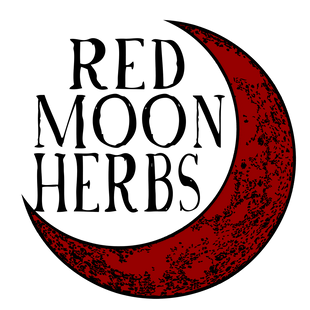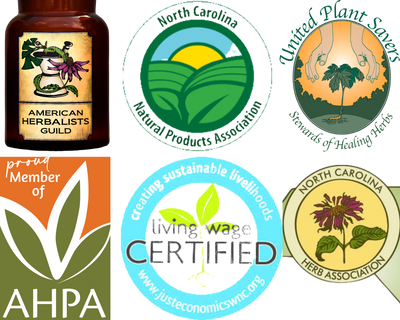Love of Nettles
by Corinna Wood
My early love affair with herbs – which led to my life’s work -- started with nettles. I’ve heard similar stories from other herbalists: one special plant reaches out and speaks to us. Not usually in words, but through the body, helping us with something specific.
Stinging Nettles as Food and Herbal Ally
In my case I was suffering from a collection of mysterious issues, which I know now to be adrenal exhaustion, manifesting as lower back discomfort, lack of energy, decreased libido, amenorrhea (infrequent menstruation), and a pervasive tendency towards feeling chilled. I was studying biology in college in the Northwest, at Evergreen. Far from home and studying hard, I valued good nutrition and self care but was very thin and too over-concerned about body image to nourish myself the way my body really needed.
On my bike route from home to school lived a magical nettles patch under a glorious grandmother oak. I had been taking botany classes and doing independent study in herbs and was delighted to discover the nettles. Stinging nettle (Urtica dioica), otherwise known as barn nettle or English nettle, is plentiful in the Northwest. Our area of Western North Carolina, which shares the propensity for abundant rainfall, is also home to barn nettle, as well as her cousin, wood nettle (Laportea canadensis). Barn nettle resembles a large mint, with serrated, blue-green, opposite leaves. Wood nettle has alternate leaves and prefers to settle around forest streams.
Curious about wild foods, I decided to try incorporating nettles into my diet, as I had read about her veritable cornucopia of nutrients: calcium, magnesium, iron, B complex vitamins, C complex Vitamins A, D and K as well as protein, cobalt, trace minerals, potassium, zinc, copper and sulfur. Nettles are especially laden with chlorophyll, which is only one molecule removed from hemoglobin, so they feed the blood.
Harvesting and Cooking Nettles
Soon enough, I stopped buying vegetables from the store. I ate nettles almost every day. In the spring and summer before it went to flower, I would simmer it and then stir in sweet white miso, incorporate it into recipes from soups to stir frys in place of spinach, and blend it up in dishes such as pesto. When it grew tall, I would harvest it and string it in my bedroom to dry for herbal infusions for the rest of the year. I thank goodness that either my intuition was strongly intact or the nettles spoke loudly, or both, because in short order I just couldn’t get enough of the stuff! My body was craving it and I indulged.
The Available Benefits of Nettles as Optimal Herbal Nutrition
In my ongoing herbal studies, I realized how the plant was helping me rejuvenate and regain my strength. Come to find out, nettle has long been revered for its benefits to the kidneys and adrenals. And it was only then that I fully realized that the collection of issues I’d been experiencing were adrenal related…and had been easing considerably over the last nettle year.
The kidneys allow us to expel toxins and the adrenals help us to respond to stress (think adrenaline) – so given the challenges of modern life, most folks can benefit profoundly from nettle’s beneficial properties. Additionally, she offers ease from seasonal allergies, strengthens the bones, hair and nails and nurtures the lungs, nervous, hormonal and immune system. Add in nettle’s bounty of iron and it adds up to a fortifying tonic for anyone who is anemic, or for pregnant, lactating or menstruating women. My menopausal friends treasure her for her support of the bones and the hormonal system as well.
Also, one of the wonderful things about nettle is that her nutritional benefits are delivered in a very balanced form and are easily assimilated and absorbed into our system. Few plants provide such a rich resource to help nurture our wellness and nourish our bodies. It certainly proved true for me, and others that I work with.






